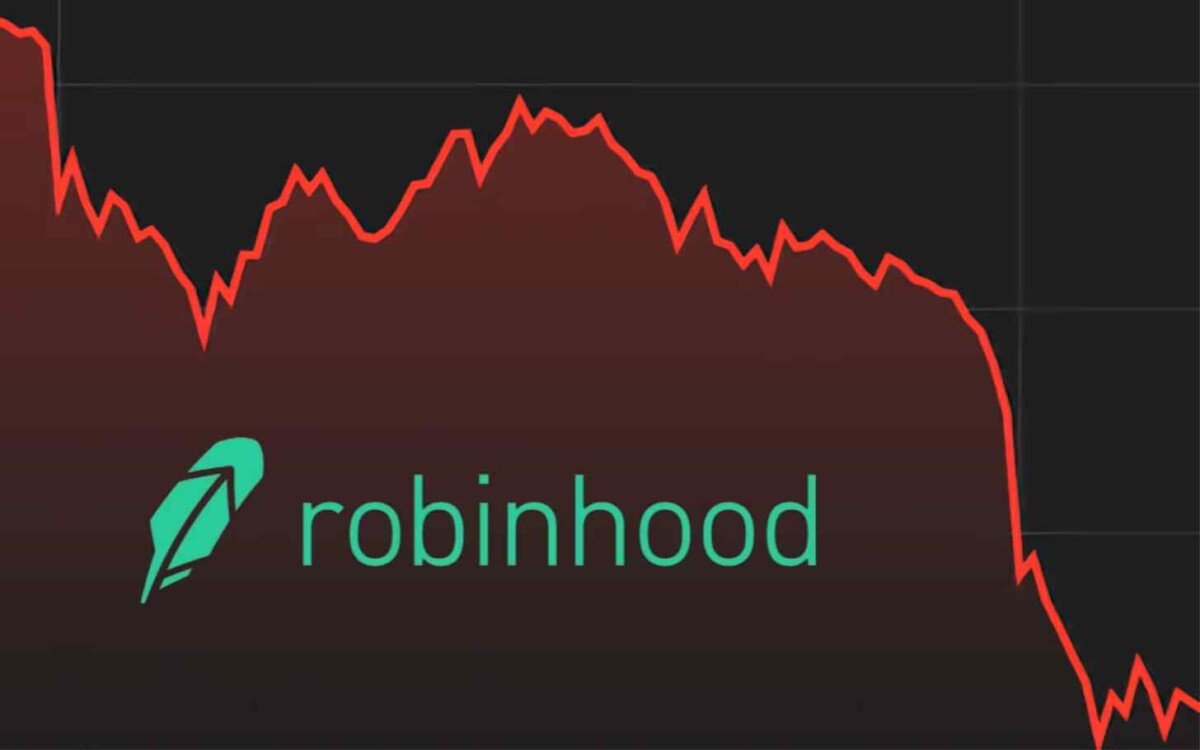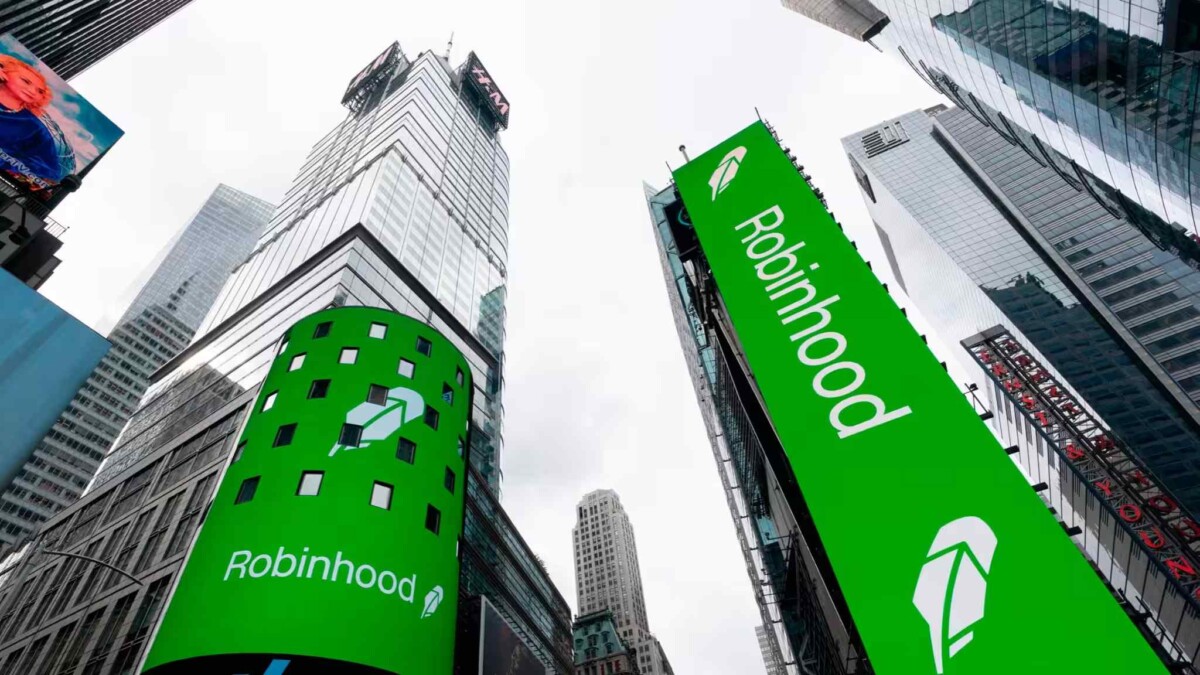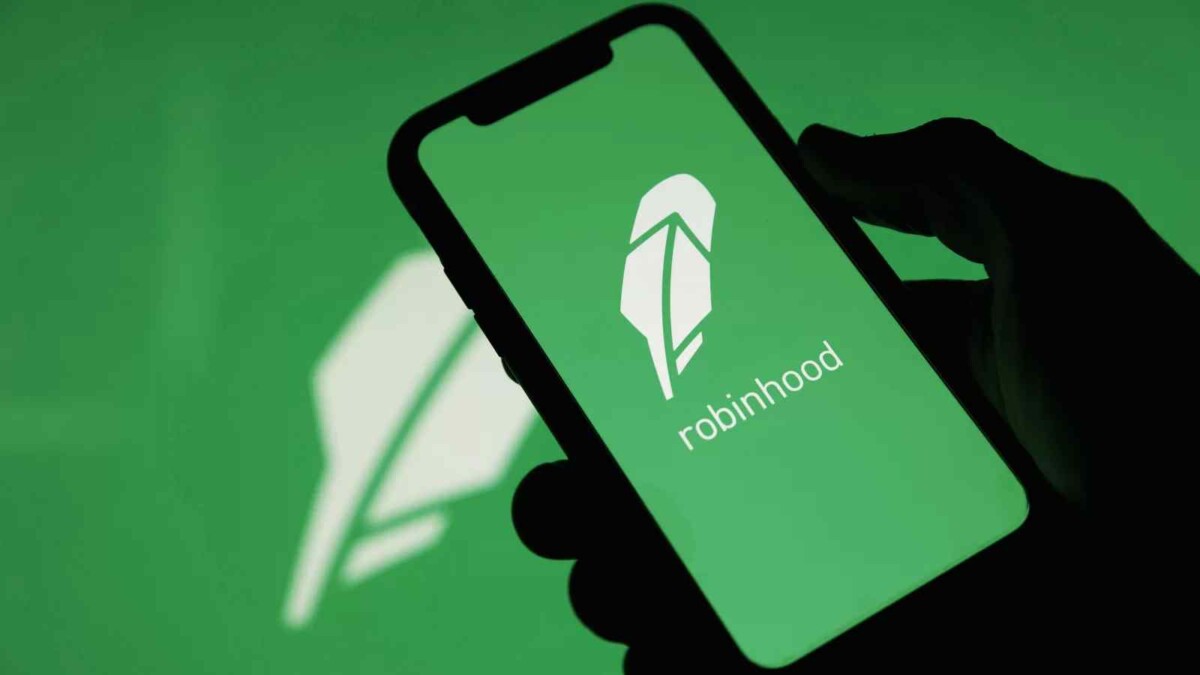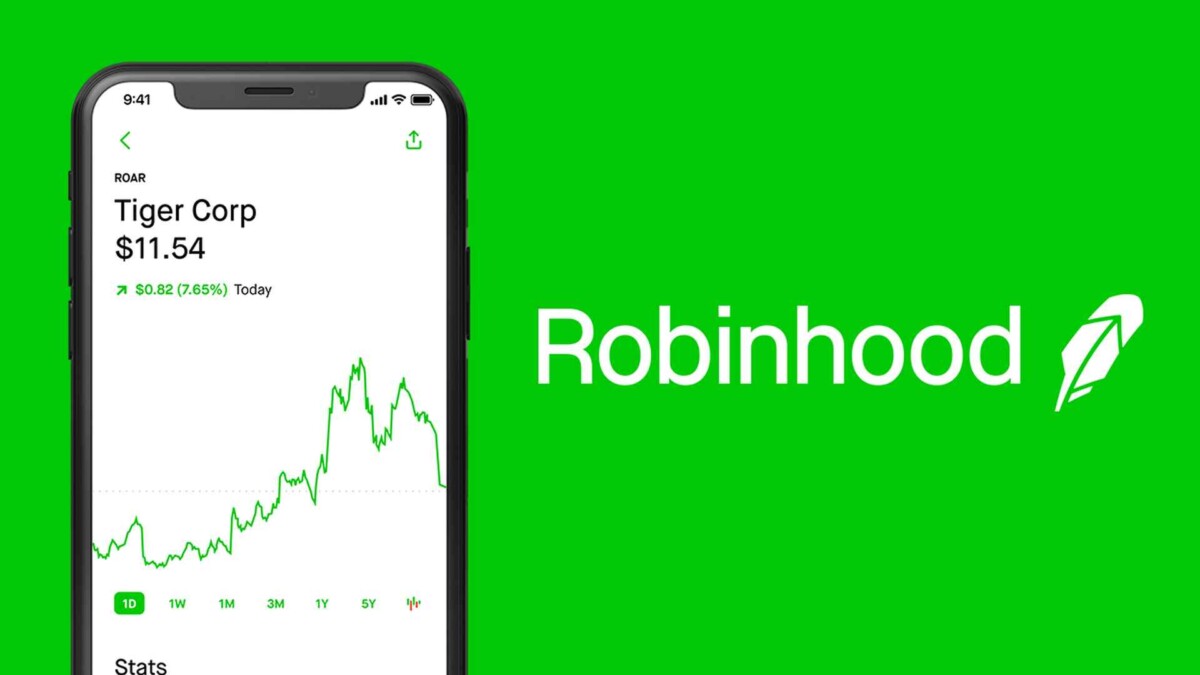Introduction
Online trading has been revolutionized by Robinhood, a trailblazing player in the financial technology industry. With the introduction of commission-free trading, the platform rose to prominence in 2013, drawing in a younger audience looking for accessible investing alternatives. Vlad Tenev and Baiju Bhatt were its founders. Regulators have lately investigated Robinhood for possible insider trading, deceptive methods, and system disruptions, notwithstanding the platform’s success. This comprehensive analysis of the Robinhood insider trading scandal seeks to provide light on the platform’s controversies, including the effects on consumer confidence, the reactions from regulators, and the wider consequences for the financial technology sector.
Robinhood
One notable financial tech startup that changed the game for online trading is Robinhood. Vlad Tenev and Baiju Bhatt started the company, which gained fame for trading stocks and cryptocurrencies without charging commissions. Which was a big change from the typical brokerage models. Robinhood, which debuted in 2013, drew in a younger audience thanks to its accessible financial markets and user-friendly layout. Popular as it was, the platform was under investigation by regulators for deceiving users regarding the platform’s income and downtime. In its pursuit of financial democratization and the disruption of traditional investment paradigms. The company—worth about $12 billion—symbolizes the meeting point of technology, money, and controversy.
Robinhood Accused By The SEC
Statements And Omissions That May Deceive
Order Flow Payments Not Disclosed
Between 2015 and late 2018, Robinhood was under SEC investigation for concealing its practice of taking money from trading businesses in exchange for directing client orders to such firms. Customer communications, such as the website’s frequently asked questions (FAQs), contained misleading representations and omissions, as detailed in the SEC’s ruling. Robinhood added to the lack of openness in its operations by not publicly recognising its dependence on “payment for order flow,” a significant source of revenue. This kept users in the dark about the actual cost structure.
Assumptions Made By Competitors About Their Own Execution Quality
According to the SEC judgement, Robinhood made false claims from October 2018 through June 2019 about the quality of its order execution comparing to competitors. Robinhood claims to be a “commission-free” platform, yet its clients end up paying more than they should for their orders. It is because of the broker’s exorbitantly high payment for order flow rates. The company’s misleading claims about its execution processes may have caused users to suffer financial losses, further accentuated by this false claim.
Robinhood Insider Trading : Negative Effects On Customers And The Economy
Trade Losses And Low Prices For Customers
Customers got worse trade prices because Robinhood didn’t look for the best reasonably available terms to execute their orders. In the end, commissions taken into consideration, the system still caused users to lose $34.1 million. According to the SEC’s inquiry, Robinhood shown a complete lack of concern for its users’ best interests by putting payment for order flow ahead of getting ideal transaction conditions, causing them to suffer actual financial losses.
Using Deceptive Marketing Strategies During Expansion
The SEC’s decision revealed that Robinhood participated in misleading advertising tactics while experiencing rapid expansion. The platform continued to give clients false information as it grew quickly, minimizing the real expenses of trading on the site. This finding brings up questions regarding moral marketing strategies. Particularly in light of the fact that the target audience is expanding and may lack financial expertise. The necessity for honesty and responsibility in the financial technology sector, particularly during times of fast growth. It is highlighted by Robinhood’s misleading advertising.
Prosecution By The SEC And Settlement With Robinhood

Order To Cease And Desist
Robinhood Financial LLC was the target of a cease-and-desist order handed out by the SEC as part of the agency’s enforcement activities. The Securities Exchange Act of 1934 and the Securities Act of 1933 both prohibit fraud. And this court order compels Robinhood to immediately cease all additional violations of these laws. The regulatory measure of the cease-and-desist order is to ensure compliance with securities laws. And to prevent the continuation of misleading practices.
Robinhood Insider Trading : A Civil Sanction Of $65,000,000
Robinhood settled for a hefty $65 million fine after the SEC’s probe. This cash settlement is meant to punish the claimed infractions and discourage similar actions in the future. The scale of the sum highlights how serious the SEC’s conclusions are and how critical it is for the financial sector to maintain openness and fairness.
Measures To Ensure Compliance
In response to the concerns voiced by the SEC, Robinhood must take further steps to ensure compliance. Better compliance with regulatory standards and stronger internal controls are the goals of these actions.
Evaluation By An Outside Consultant
The law mandates that Robinhood hire a third-party consultant to examine all of the company’s practices. And rules concerning customer service, order fulfilment, and payment processing. The purpose of this external evaluation is to give Robinhood a fair grade. And point out where they may make changes for the better. The evaluation process is made more objective and transparent with the help of an independent consultant, who provides an additional level of inspection.
Evaluating Policies And Procedures
The settlement agreement requires Robinhood to review its current rules and procedures and, if necessary, make changes. An exhaustive review of all internal protocols about customer communications and order fulfilment is required for this. Robinhood plans to raise the bar for future compliance by reviewing. And maybe improving these standards to bring its practices in line with regulatory requirements.
Supplemental Matters And FINRA’s $70 Million Penalty
The Greatest Fine Ever Levied By FINRA
Financial Industry Regulatory Authority (FINRA) fined Robinhood $70 million, the biggest penalty ever levied by the organisation. There were serious problems found throughout its probe into Robinhood’s practices, and this hefty financial penalty shows that.
Matters Regulated By The Charge
The many issues raised by the fine about Robinhood’s business activities demonstrate the complex nature of the regulatory infractions. This fee is meant to remedy the instances where Robinhood gave its consumers false or misleading information. As an example, there are deceptive claims made regarding margin trading and the general quality of order execution. Such misleading information not only limits openness. But also poses a risk to investors who may base their trading decisions on erroneous assumptions.
Customer harm caused by Robinhood platform system disruptions is another main point of the fine. Between 2018 and 2020, there were several disruptions. That prevented users from accessing their accounts, even during times of extreme market volatility. Some traders lost a lot of money because of this, thus trading systems need to be extremely stable.
Ensuring Conformity With Regulations And Safeguarding Money Investors
Financial sector regulatory compliance and investor protection are further emphasized by the penalties. This platform’s dedication to preserving the integrity of the financial markets is called into doubt by Robinhood’s refusal. It is to follow established norms and rules meant to protect investors. Compliance with regulations is paramount, underscoring the importance of even the most forward-thinking fintech companies adhering to established standards for the sake of market stability and investor protection.
The size of the penalties is FINRA’s way of sending a message that financial institutions, particularly ones with Robinhood’s level of market impact, must put consumer safety first and follow all applicable regulations. While the financial sector is always changing. This historic fine establishes a standard for strict enforcement and responsibility. Encouraging regulation that protects investors’ money and keeps the financial system running smoothly.
Regulatory Review And Robinhood’s Past Legal Troubles
Past Penalties And Regulatory Measures
Regulatory proceedings and fines have been a tumultuous legal landscape for the pioneering financial technology company Robinhood. For its repeated misstatements and failures to disclose its acceptance of payments from trading firms. Robinhood was fined a significant $65 million by the Securities and Exchange Commission (SEC). This fine brought to light the company’s past regulatory violations. It caused alarm among industry watchdogs, and highlighted its commitment to openness and fairness.
Opponents’ Worries Regarding Gaps In Operations And Regulations
The operational and regulatory methods of Robinhood have been the subject of growing criticism. Users love the company’s innovative fee-free trading approach, but some say it promotes recklessness. There are some who see the absence of fees, along with behavioural nudges. And push alerts, as creating an atmosphere similar to gambling. Investors doubt Robinhood’s dedication to protecting their interests. It is due to regulatory slip-ups include giving clients false information about margin trading and authorising high-risk options trading despite warning signs.
Effect On Robinhood’s Good Name And Confidence In The Platform
Without a doubt, Robinhood’s formerly excellent reputation has been marred by the legal disputes and regulatory scrutiny. Amidst the platform’s meteoric rise and influx of tech-savvy youth, trust has been steadily chipped away due to the numerous problems. User confidence in the platform’s dedication to investor protection. And openness has been shaken by recent unfavourable press. It include a $65 million settlement with the SEC and the largest-ever penalties issued by FINRA, totaling $70 million. Therefore, as it prepares for a high-profile initial public offering (IPO), Robinhood has a formidable task ahead of it: repairing its image and winning back the trust of its users.
Robinhood’s Path To An Initial Public Offering

Matching The Announcement By Finra With Robinhood’s Initial Public Offering Prospectus
Complicating matters further, FINRA’s announcement came just before Robinhood was expected to file for its initial public offering, thus complicating the company’s public debut. Many are watching Robinhood’s stock price and reaction to the news of the hefty penalties with great interest. The storyline surrounding Robinhood’s IPO could be influenced by how regulatory activities interact with the company’s IPO timeframe.
Possible Consequences Of Uncertainty In Compliance Regulations
This record-setting penalties imposed by FINRA adds another layer of regulatory uncertainty for Robinhood. To what extent the firm can handle and fix the problems brought up by the regulatory agency is something. That potential investors may look attentively at. Due to a number of operational and regulatory issues, Robinhood may face a fine. That might influence investor trust and the company’s risk perception. It will be crucial to the company’s success in going public to successfully navigate and resolve regulatory difficulties.
Evaluation Of The Market And Reaction Of Investors
A crucial component that can affect Robinhood’s initial public offering. It is the way the market views the company, which is affected by the SEC accusations and FINRA’s severe penalty. Potential backers will look at the firm’s strategy for dealing with regulatory issues, specifically those from FINRA and the SEC. A lot of what determines market mood will be the degree of openness, dedication to following regulations, and attempts to strengthen investor protection. Investor sentiment and possible market dynamics are impacted by the efforts of financial industry watchdogs. Which add to the storyline surrounding Robinhood.
How People Feel And What Businesses Do

Robinhood’s Reputation And The Faith Of Its Customers
Loyalty, scepticism, and anxiety have defined the public’s reaction to Robinhood Insider Trading. Customer trust has dropped as news of deceptive methods and system breakdowns surfaced, despite the platform’s initial success in attracting users with its innovative fee-free approach. Many users, particularly those in the younger generation drawn to Robinhood’s intuitive design, were dissatisfied with the platform’s lack of honesty and unfair trading policies. There has to be more transparency in the fintech sector after several users questioned the platform’s dedication to its goal of making money accessible to all.
Remarks From The Sec And FINRA, The Regulatory Agencies
Responding to Robinhood’s actions has been a collaborative effort between regulatory authorities, with the SEC and FINRA playing key roles. Platform infractions were so severe that they warranted charges from the SEC and a record-breaking $65 million settlement. The business has been sent a strong warning by regulatory organisations, who have made statements stressing the significance of brokers fulfilling their responsibilities and being honest. The record $70 million fine levied by FINRA shows that platforms will be held responsible for any harm that their clients may have suffered, and it further emphasises the importance of following investor protection guidelines.
Thoughts From Well-Known Investors And Business Leaders
A number of well-known investors and businesspeople have spoken out against Robinhood’s policies and procedures. Some prominent Berkshire Hathaway investors, including Warren Buffett and Charlie Munger, have spoken out against the platform, calling it a “gambling parlour masquerading as a respectable business.” Such remarks bring to light worries over the apparent promotion of dangerous trading practices and the necessity for more stringent regulatory supervision. These viewpoints add fuel to the fire of the continuing discussion on how Robinhood influences investor actions and how it affects the financial system as a whole. The role of fintech platforms in ensuring a balance between innovation and investor protection is being called into question as prominent figures in the industry express concerns.
Conclusion
A multi-layered story involving innovation and controversy unfolds in the Robinhood insider trading scandal. The platform is currently dealing with regulatory fines, penalties, and inquiries on its dedication to openness; it was formerly lauded for democratising finance. There is a fine line between financial innovation and regulatory accountability, as seen by public reaction, industry response, and the views of prominent figures. As it faces these obstacles, Robinhood is a case study in the changing world of online trading. This makes us think about the ethical issues and regulatory frameworks that are important for keeping customers’ trust and the market honest.
Frequently Asked Questions
1. An Insider Trading Saga Involving Robinhood?
The well-known financial tech platform Robinhood has been embroiled in a string of scandals over its insider trading feature. Concerns around system breakdowns, refusal to disclose revenue sources, and misleading customer interactions are all part of it. Regulators have responded with penalties and actions, and the platform’s influence on the financial sector has been the subject of more debate as a result of these problems.
2. To What Exact Allegations Did The Sec Level Its Charges Against Robinhood?
For failing to execute client orders at the best available terms and for making deceptive claims regarding its primary revenue source, payments for order flow, Robinhood was accused by the Securities and Exchange Commission (SEC). The SEC claimed that Robinhood misled consumers into believing it could match or surpass competitors in execution quality while actually providing lower trading costs, causing them to lose millions of dollars.
3. In Light Of The Robinhood Scandals, What Is The General Public’s Opinion?
Some users have voiced their dissatisfaction and worry about the platform’s suspected deceptive methods, which has prompted a mixed reaction from the public. Customers used to have faith in Robinhood because of its fee-free strategy, but that faith has since faded due to recent revelations. As a result of the scandals, many are talking about how the fintech industry could be more open and ethical.
4. How Did Regulatory Bodies Like Finra Factor Into The Story?
The biggest fine ever levied by the Financial Industry Regulatory Authority (FINRA) was a record $70 million levied against Robinhood. The concerns addressed by FINRA’s action included misleading information, customer harm from system breakdowns, and the necessity for the platform to follow regulations meant to safeguard investors and market integrity.
5. How Have Well-Known People In The Investment And Industry Sectors Reacted To The Robinhood Scandal?
Robinhood has been under fire from prominent figures such as Warren Buffett and Charlie Munger of Berkshire Hathaway, who have dubbed it a “gambling parlour masquerading as a respectable business.” They have voiced worries about how the platform may affect investor actions and the financial system as a whole, adding fuel to the fire of the continuing discussion regarding fintech platforms’ duty to protect investors.


